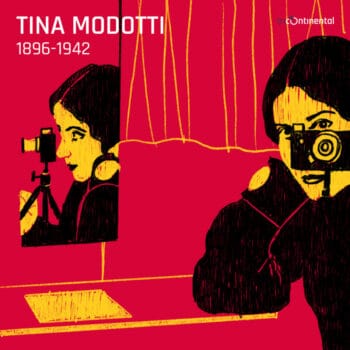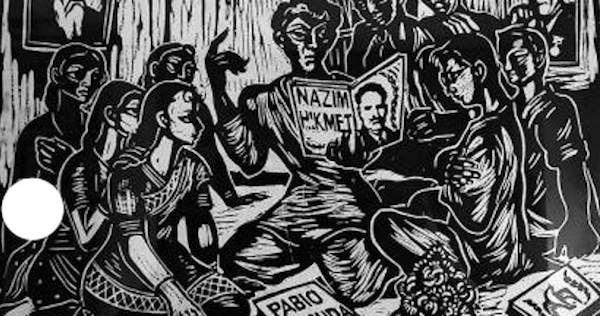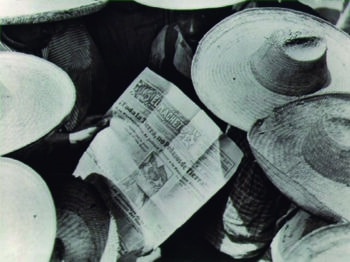Dear friends,
Greetings from the desk of the Tricontinental: Institute for Social Research.
In October 2021, the United Nations Development Programme (UNDP) released a report that received barely any attention: the Global Multidimensional Poverty Index 2021, notably subtitled Unmasking disparities by ethnicity, caste, and gender. ‘Multidimensional poverty’ is a much more precise measurement of poverty than the international poverty line of $1.90 per day. It looks at ten indicators divided along three axes: health (nutrition, child mortality), education (years of schooling, school attendance), and standard of living (cooking fuel, sanitation, drinking water, electricity, housing, assets). The team studied multidimensional poverty across 109 countries, looking at the living conditions of 5.9 billion people. They found that 1.3 billion–one in five people–live in multidimensional poverty. The details of their lives are stark:
- Roughly 644 million or half of these people are children under the age of 18.
- Almost 85 per cent of them reside in Sub-Saharan Africa and South Asia.
- One billion of them are exposed to solid cooking fuels (which creates respiratory ailments), inadequate sanitation, and substandard housing.
- 568 million people lack access to proper drinking water within a 30-minute round trip walk.
- 788 million multidimensionally poor people have at least one undernourished person in their home.
- Nearly 66 per cent of them live in households where no one has completed at least six years of schooling.
- 678 million people have no access to electricity.
- 550 million people lack seven of eight assets identified in the study (a radio, television, telephone, computer, animal cart, bicycle, motorcycle, or refrigerator). They also do not own a car.
 The absolute numbers in the UNDP report are consistently lower than figures calculated by other researchers. Take their number of those with no access to electricity (678 million), for example. World Bank data shows that in 2019, 90 per cent of the world’s population had access to electricity, which means that 1.2 billion people had none. An important study from 2020 demonstrates that 3.5 billion people lack ‘reasonably reliable access’ to electricity. This is far more than the absolute numbers in the UNDP report, but, regardless of the specific figures, the trend lines are nonetheless horrific. We live on a planet with greatly increasing disparities.
The absolute numbers in the UNDP report are consistently lower than figures calculated by other researchers. Take their number of those with no access to electricity (678 million), for example. World Bank data shows that in 2019, 90 per cent of the world’s population had access to electricity, which means that 1.2 billion people had none. An important study from 2020 demonstrates that 3.5 billion people lack ‘reasonably reliable access’ to electricity. This is far more than the absolute numbers in the UNDP report, but, regardless of the specific figures, the trend lines are nonetheless horrific. We live on a planet with greatly increasing disparities.
For the first time, the UNDP has focused attention on the more granular aspects of these disparities, shining a light on ethnic, race, and caste hierarchies. Nothing is as wretched as social hierarchies, inheritances of the past that continue to sharply assault human dignity. Looking at the data from 41 countries, the UNDP found that multidimensional poverty disproportionately impacts those who face social discrimination. In India, for instance, Scheduled Castes and Scheduled Tribes (‘scheduled’ because the government regards them as officially designated groups) face the brunt of terrible poverty and discrimination, which in turn exacerbates their impoverishment. Five out of six people who struggle with multidimensional poverty are from Scheduled Castes and Tribes. A study from 2010 showed that each year, at least 63 million people in India fall below the poverty line because of out-of-pocket health care costs (that’s two people per second). During the COVID-19 pandemic, these numbers increased, though exact figures have not been easy to collect. Regardless, the five out of six people who are in multidimensional poverty–many of them from Scheduled Castes and Tribes–do not have any access to health care and are therefore not even included in that data. They exist largely outside formal health care systems, which has been catastrophic for these communities during the pandemic.
Last year, the secretary general of ALBA-TCP (Bolivarian Alliance for the Peoples of Our America–Peoples’ Trade Treaty), Sacha Llorenti, asked Tricontinental: Institute for Social Research and the Instituto Simón Bolivar in Caracas, Venezuela to start an international discussion responding to the broad crises of our times. We brought together twenty-six research institutes from around the world whose work has now culminated in a report called A Plan to Save the Planet. This plan is reproduced with a longer introduction in dossier no. 48 (January 2022).
We looked carefully at two kinds of texts: first, a range of plans produced by conservative and liberal think tanks around the world, from the World Economic Forum to the Council for Inclusive Capitalism; second, a set of demands from trade unions, left-wing political parties, and social movements. We drew from the latter to better understand the limitations of the former. For instance, we found that the liberal and conservative texts ignored the fact that during the pandemic, central banks–mostly in the Global North–raised $16 trillion to sustain a faltering capitalist system. Though money is available that could have gone towards the social good, it largely went to shore up the financial sector and industry instead. If money can be made available for those purposes, it can certainly be used to fully fund a robust public health system in every country and a fair transition from non-renewable fossil fuels to renewable energy sources, for example.
The plan covers twelve areas, from ‘democracy and the world order’ to ‘the digital world’. To give you a sense of the kinds of claims made in the plan, here are the recommendations in the section on education:
- De-commodify education, which includes strengthening public education and preventing the privatisation of education.
- Promote the role of teachers in the management of educational institutions.
- Ensure that underprivileged sectors of society are trained to become teachers.
- Bridge the electricity and digital divides.
- Build publicly financed and publicly controlled high-speed broadband internet systems.
- Ensure that all school children have access to all the elements of the educational process, including extra-curricular activities.
- Develop channels through which students participate in decision-making processes in all forms of higher education.
- Make education a lifelong experience, allowing people at every stage of life to enjoy the practice of learning in various kinds of institutions. This will foster the value that education is not only about building a career, but about building a society that supports the continuing growth and development of the mind and of the community.
- Subsidise higher education and vocational courses for workers of all ages in areas related to their occupation.
- Make education, including higher education, available to all in their spoken languages; ensure that governments take responsibility for providing educational materials in the spoken languages in their country through translations and other means.
- Establish management educational institutes that cater to the needs of cooperatives in industrial, agricultural, and service sectors.
 A Plan to Save the Planet is rooted in the principles of the United Nations Charter (1945), the document with the highest level of consensus in the world (193 member states of the UN have signed this binding treaty). We hope that you will read the plan and the dossier carefully. They have been produced for discussion and debate and are to be argued with and elaborated on. If you have any suggestions or ideas or would like to let us know how you were able to use the plan, please write to us at [email protected].
A Plan to Save the Planet is rooted in the principles of the United Nations Charter (1945), the document with the highest level of consensus in the world (193 member states of the UN have signed this binding treaty). We hope that you will read the plan and the dossier carefully. They have been produced for discussion and debate and are to be argued with and elaborated on. If you have any suggestions or ideas or would like to let us know how you were able to use the plan, please write to us at [email protected].
Study has been a key instrument for the growth of working-class struggle, as shown by the impact of working-class newspapers, journals, and literature on the expansion of popular imaginations. In 1928, Tina Modotti photographed Mexican revolutionary farmers reading El Machete, the newspaper of their communist party. Modotti, one of the most luminous revolutionary photographers, reflected the sincere commitment of Mexican revolutionaries, of the Weimar Left, and of fighters in the Spanish Civil War. The farmers reading El Machete and the peasant organiser in India reading the Turkish communist poet Nâzim Hikmet in a hut during the great Bengal famine of 1943 depicted in the woodcut by Chittaprosad suggest places where we hope the plan will be discussed. We hope this plan will be used not merely as a critique of the present, but as a programme for a future society that we will build in the present.
Warmly,
Vijay


